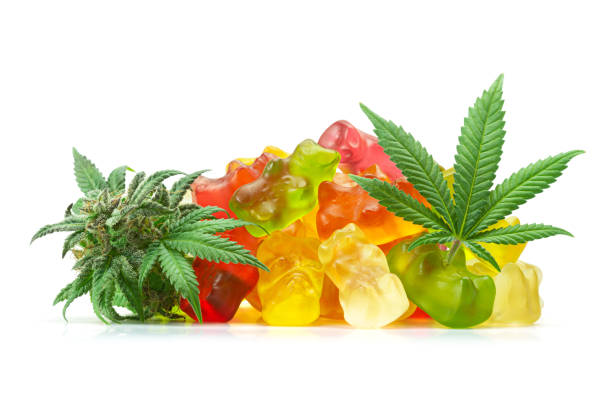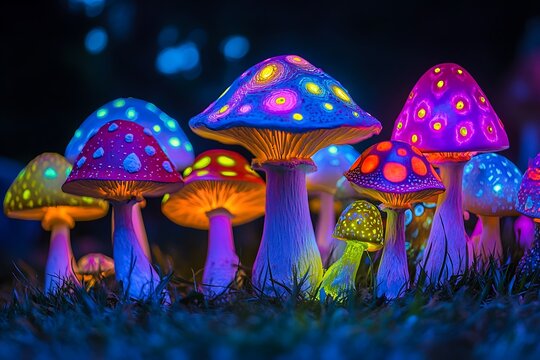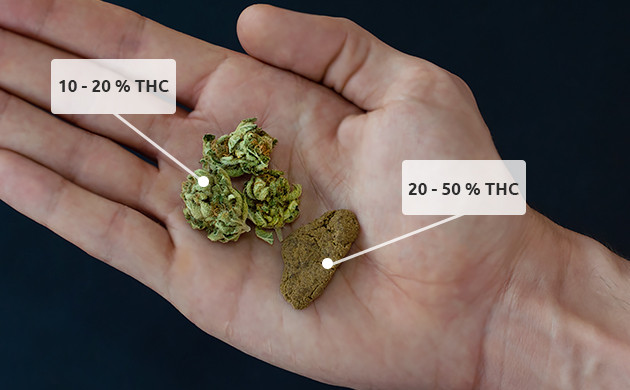
Neuroplasticity and Cannabis: How THC May Rewire Learning Pathways
The human brain is not a static organ. It has the remarkable ability to adapt, reorganize, and form new connections
FREE SHIPPING ON ORDERS OVER $99 | 10 points = $1

In the quest for sharper focus, better memory, and improved mental performance, two intriguing paths have emerged: nootropics and psilocybin. Both are known for their cognitive-enhancing potential, but they work in very different ways.
While nootropics are often viewed as brain-boosting supplements for productivity and mental stamina, psilocybin, the active compound in psychedelic mushrooms, has recently gained attention for its ability to improve cognition through neuroplasticity, emotional clarity, and even spiritual insight.
But are they really comparable? Let’s break down how psilocybin and nootropics differ in their mechanisms, effects, risks, and long-term benefits for the brain.
Nootropics (also called “smart drugs”) are compounds that enhance cognitive function such as memory, focus, creativity, or motivation. They range from:
They typically offer short-term cognitive benefits without significantly altering perception or consciousness.
Psilocybin is a naturally occurring psychedelic found in certain species of mushrooms. It is converted in the body into psilocin, which activates serotonin 5-HT2A receptors in the brain—leading to altered perception, enhanced introspection, and a sense of mental “reset.”
While traditionally used for spiritual or therapeutic purposes, psilocybin—especially at microdoses—is now being explored for enhancing creativity, mental flexibility, and long-term cognitive resilience.
| Feature | Nootropics | Psilocybin |
|---|---|---|
| Primary Targets | Dopamine, acetylcholine, GABA, glutamate | 5-HT2A serotonin receptors |
| Speed of Action | Rapid (within minutes or hours) | Slower onset; more profound during full doses |
| Effect on Brain Structure | Mild stimulation | Stimulates neuroplasticity and dendritic growth |
| Consciousness Alteration | None or very subtle | Significant in full doses; minimal in microdosing |
Takeaway: Nootropics sharpen existing circuits; psilocybin may create entirely new pathways in the brain.
Pros:
Cons:
Pros:
Cons:
Psilocybin isn’t about “boosting performance”—it’s about unlocking untapped mental potential.
If you’re seeking more than productivity—like meaning, purpose, or healing from burnout—psilocybin may go where nootropic stacks cannot.
Recent studies suggest psilocybin can create lasting brain changes, including:
Nootropics, on the other hand, usually stop working once you stop taking them.
| Goal | Best Choice |
|---|---|
| Focused work session | Nootropics (e.g., caffeine + L-theanine) |
| Long-term cognitive growth | Psilocybin (microdosing or guided sessions) |
| Breaking creative block | Psilocybin |
| Studying for exams | Nootropics |
| Emotional balance and insight | Psilocybin |
| Mental energy and motivation | Either (depending on dose & purpose) |
Psilocybin and nootropics serve different—but sometimes complementary—purposes. If you want sharper focus today, nootropics can help. But if you want to restructure how you think and feel long-term, psilocybin may offer a deeper kind of cognitive evolution.
In an ideal brain-enhancement toolkit, there’s room for both—quick wins and deep work. Just be sure to research, respect your body and mind, and when it comes to psilocybin, always prioritize safety, legality, and intention.

The human brain is not a static organ. It has the remarkable ability to adapt, reorganize, and form new connections

In our fast-paced world, many people accumulate what’s known as sleep debt—a deficit that builds when you consistently sleep fewer